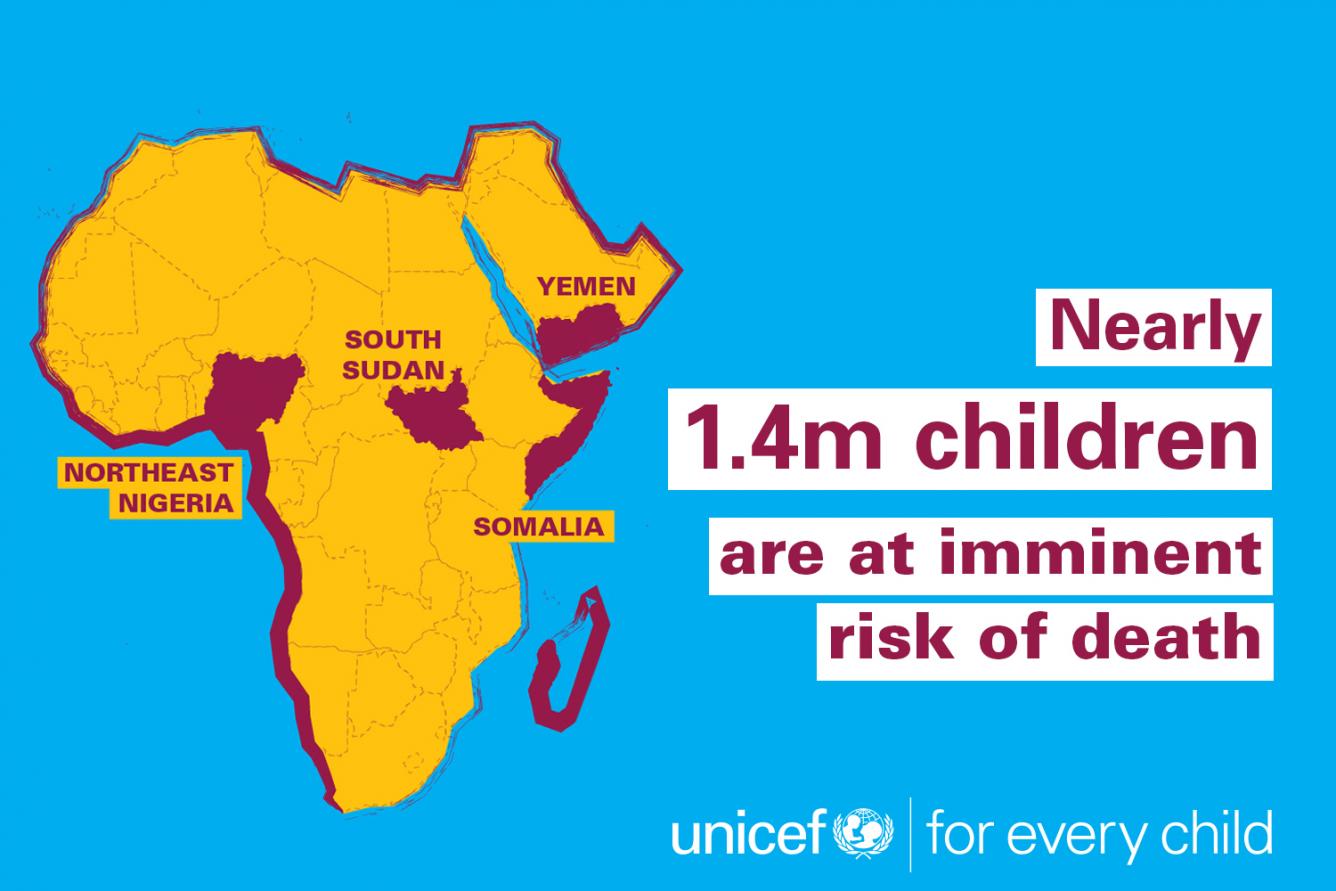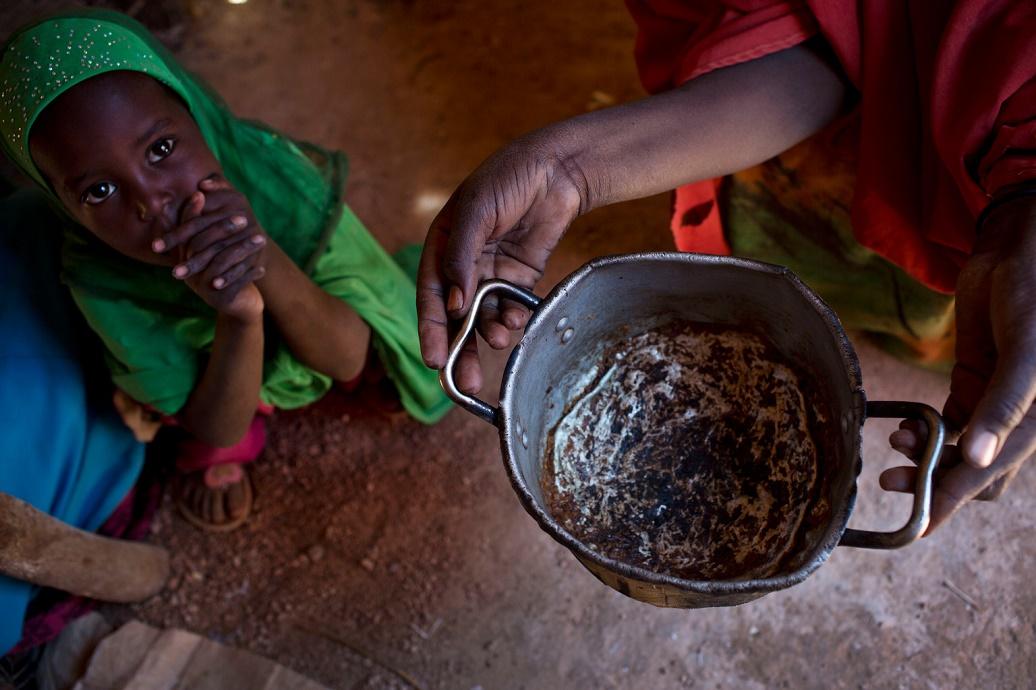
From famine to conflict to children uprooted from their homes, the world is currently facing the greatest humanitarian crisis since World War II. UNICEF is on the ground and scaling up its response in the hardest hit areas. But responding to a famine crisis is about more than just providing emergency food for children today. It’s about preventing the damaging effects of hunger on child development, which can limit their future potential.
Effects of long-term hunger can include:
- Permanent deficits in social and emotional development
- Brain impairment
- Poor performance at school
- Reduction in motor skills and activity
- Anxiety or depression
- Behavioural problems
If we wait too long to respond, the effects of hunger on children’s learning could be life-long.
Thanks to the Government of Canada, your gift will now have double impact! Donate by June 30 to help save twice as many children's lives
Here are five things you should know about the famine crisis and how you can help these children today – so they can have a better future tomorrow.
1. Children can’t wait. Famine, drought and armed conflict are devastating lives and futures
Famine has already been declared South Sudan and is looming in other countries. Children are suffering from malnutrition and disease and need our help.
2. Children are being hit hardest. Millions are on the verge of starvation
Nearly 1.4 million children are at imminent risk of death this year. In each of the four famine countries and across the sub-regions children will succumb to disease – cholera and measles –which induces severe diarrhea and dehydration.
3. For now, the crisis has a four-country epicenter: Yemen, Somalia, South Sudan, north-east Nigeria
22 million children are hungry, sick, displaced and out of school in the four countries. As violence, hunger and thirst force people to move within and across borders, malnutrition rates will continue to soar not just in these four countries, but also in the Lake Chad basin and the Greater Horn of Africa.
4. Human actions drive the crisis
Prolonged wars and conflict are devastating the lives of millions of children and families and threaten famine. Warring parties are forcing people from their homes, destroying crops and livelihoods, and blocking humanitarian agencies’ efforts to reach those in desperate need with life-saving assistance such as food and clean water. Drought is exacerbating these man-made food crises in parts of Africa, in particular, Somalia and the Horn of Africa.
5. Time is running out
If the situation doesn’t improve, not only do children face the risk of dying from hunger, they also have risks for the future. Severe malnutrition also irreversibly impairs intellectual and physical development, affecting children’s life opportunities. The longer we wait to address these children's needs, the more we jeopardize their future.
What can you do?
Three things are urgently needed to save hundreds of thousands of lives:
- Call for an end to the human rights violations that are key drivers of the famines
- Demand that all parties to these conflicts allow unimpeded and unconditional access to all children and families in need
- Donate. Funding is urgently needed to enable teams already on the ground to rapidly increase life-saving nutrition, food and water, sanitation and hygiene programs.
Children cannot wait for yet another famine to be declared before we take action. Please help today.






